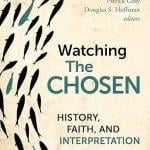Some Different Meanings of “Biblical Inerrancy” and a Challenge to Evangelical “Inerrantists”
This essay follows directly on the heels of a recent one posted here entitled “Is Real Communication as Perfect “Meeting of Minds” Possible? Some Radical Questions about Words like ‘Inerrancy’.” There I argued that even passionate evangelical defenders of “biblical inerrancy” do not all mean the same thing by “inerrancy” and that the word functions largely as a shibboleth for deciding who’s “in” and who’s “out” of the evangelical “camp” (especially in America). Every conservative evangelical expounder and defender of “biblical inerrancy” defines it somewhat differently by, for example, offering different qualifications of the word. A person who affirms the full truth of the Bible, its accuracy and authority, making the same qualifications as leading defenders of “inerrancy,” defining it much the same but rejecting the word “inerrancy” as intellectually dishonest because it implies a standard of accuracy that does not really fit the phenomena of Scripture, will be rejected just because he does not like or use the word “inerrancy.”
A classic example of that strange phenomenon is the conservative evangelical reaction to Clark Pinnock’s book The Scripture Principle (Harper & Row, 1984). I read many conservative evangelical critiques of Pinnock’s book. If one only read the reviews one would think Pinnock set out in that book to deny biblical inerrancy. In fact, however, he affirmed the word with proper qualifications but wrote that “Inerrancy is not, to be quite frank, an ideal term to say what needs to be said. This is chiefly because it connotes in many people’s minds a modern, scientific precision that the Bible does not display.” (78) I suspect some critics already determined to criticize Pinnock stopped reading right there. However, on the same page and the next Pinnock continued by affirming a “moderate definition of inerrancy” and asks “What legitimate objection could any Christian have to [Millard] Erickson’s definition of inerrancy? ‘The Bible, when correctly interpreted in the light of the level to which culture and the means of communication had developed at the time it was written, and in view of the purposes for which it was given, is fully truthful in all that it affirms’.” (78-79) Pinnock then asked of Erickson’s definition of inerrancy “Does it not convey the strong respect we are seeking as well as giving us all the room we could possibly need for handling the biblical difficulties?” (79)
And yet, somehow, for whatever reasons, Pinnock’s book was vilified as undermining evangelical belief in the Bible’s authority by many critics who embraced Erickson’s writings on the Bible as well within “evangelical boundaries.” I suspect the reasons may be that 1) Pinnock explicated the necessary qualifications to “inerrancy” honestly and fully, and 2) said the word “inerrancy” is not “an ideal term.”
Beginning in the 1980s and growing throughout the 1990s certain conservative evangelical self-appointed “Grand Poobahs” of evangelicalism, would-be gatekeepers of evangelicalism and armed patrollers of “evangelical boundaries,” began to accuse many fellow evangelicals who affirmed “biblical inerrancy” of not really believing in it because they qualified it wrongly (according to the gatekeepers) and/or they held theological views, based on their own readings of Scripture, that they (the gatekeepers) considered inconsistent with true belief in inerrancy.
The first major, public salvo in this new (or continuing since 1976) “battle for the Bible” was heard in the 1980s when certain leading members of the Evangelical Theological Society attempted to expel from its ranks an evangelical New Testament scholar who published a commentary on the Gospel of Matthew in which he questioned the nature (not the truth) of certain portions of that gospel’s narrative of Jesus’s birth. In other words, he interpreted them non-literally. The New Testament scholar resigned from the ETS rather than go through an inquisition that was being organized against him. At that time I was relatively new to the evangelical academy and was considering joining the ETS but dropped that plan when I saw that its requirement of affirmation of biblical inerrancy was implicitly a requirement of more than affirmation of biblical inerrancy; it was a requirement of a literal interpretation of the Bible—to suit the hermeneutics and theologies of the self-appointed Grand Poobah’s of the ETS. When the great controversy over open theism broke out in the 1990s and the brought into the ETS as an attempt to expel Pinnock and others because of their alleged disagreement with biblical inerrancy due to their affirmations of open theism I was more than glad that I was not a member of the ETS. What happened there was, to me, a clear indication that “biblical inerrancy” was being used as a cipher for a literalistic interpretation of the Bible and possibly even for a certain systematic theology (viz., that of Charles Hodge and his heirs) because the reasons being given against open theism were rooted in a high Reformed or Calvinist theology (e.g., if open theism is true God could not have guaranteed the inspiration and authority of the Bible which assumed “plenary verbal inspiration” and absolute sovereign divine control of the human authors of Scripture).
Whenever I talk against the word “inerrancy” here—as in my recent essay mentioned above—some defenders of the word insist it is the best, even necessary, term for expressing and protecting the Bible’s authority. I have no problem with others affirming “biblical inerrancy” so long as they acknowledge the proper and necessary qualifications—which to me make the term almost ridiculous—and do not confuse the concept with a literalistic hermeneutic which is a separate issue altogether. And so long as they do not make the word a shibboleth, a litmus test, for evangelical identity in matters of hiring, publishing, and membership in evangelical organizations. The reason I do not use the term is because it usually does—at least in American conservative evangelical circles—imply and include (in the users’ minds) a literalistic hermeneutic and (especially among non-scholars) a kind of scientific and historical accuracy foreign to the literary and cultural phenomena of Scripture.
So here is my challenge to those “out there” who still want to argue with me about this by affirming the importance of the word “inerrancy” for expressing and protecting the authority of the Bible as “God’s Word.” Explain the discrepancy between 1 Corinthians 10:8 where Paul says 23,000 Hebrews died in one day and the clear parallel passage in Numbers 25:9 which says 24,000 Hebrews died in that plague.
Here are the “explanations” I have read and heard by defenders of “biblical inerrancy”:
First, if we possessed the original autographs of 1 Corinthians and Numbers we would see that they agree. The discrepancy is not in the original autographs—which is why appeal to the original autographs is necessary. Only the original autographs were inerrant.
Second, this discrepancy is irrelevant to Paul’s purpose in 1 Corinthians and therefore, assuming it was in the original autographs, does not touch “inerrancy” as “perfection with respect to purpose.” Paul was not trying to give a flawless performance in statistics, so this should not even be considered an “error.”
Third, even if Paul did not know this, the Holy Spirit did, as he inspired Paul to write 1 Corinthians—1,000 Hebrews died in that incident during the night. Paul only says 23,000 died “in one day.”
Fourth, Paul was referring to a different event than the one recorded in Numbers 25:9.
Fifth, this “discrepancy” is unworthy of discussion; belief in “biblical inerrancy” can simply ignore it. Even bringing it up is evidence of skeptical unbelief in the Bible as God’s Word. Inerrantists are well within their rights to ignore such questions.
Sixth, and finally, “biblical inerrancy” only applies to biblical teachings, not every minor allusion or report found in Scripture (“partial inerrancy”).
Now, I will deconstruct each of those defenses of the word “inerrancy.”
First, appeal to the original autographs is simply silly insofar as one does it—as is always the case!—to protect the authority of Scripture based on the idea that strict, literal inerrancy is necessary for that. If that’s the case, then no existing Bible is authoritative. This approach is simply deductive (viz., God is the author of Scripture, God cannot lie, therefore if we had the original autographs…) and tortures the actual phenomena of Scripture as we possess it in the best translations and reconstructions of the original autographs all of which possess such discrepancies. In short, this response to the mentioned discrepancy amounts to obscurantism and actually undermines the authority of any existing Bible.
Second, given what most people mean by “inerrant” in today’s modern, scientific world, this explanation is bound to seem silly to most people—including all but “insiders” of the evangelical academy who persist in using “inerrancy” for “perfection with respect to purpose” and argue it is compatible with clear errors in Scripture. Very few, if any, lay people or beginning students in evangelical institutions of higher education, would ever agree—until they are indoctrinated—that “inerrant” can mean “perfect with respect to purpose” including blatant factual errors.
Third, that’s just a silly dodge and assumes a kind of dictation theory of inspiration.
Fourth, that’s also just a transparently silly dodge.
Fifth, that hardly addresses the issue and is no defense of “biblical inerrancy” without some further explanation of the discrepancy. This is obscurantism at its worst.
Sixth, that is not what is meant in conservative evangelical circles by “inerrancy” and, without the word “partial” before “inerrancy” is misleading at best.
So what do I make of the discrepancy between 1 Corinthians 10:8 and Numbers 25:9? Because all of the offered explanations that intend to make it compatible with “biblical inerrancy” fail, I regard it as proof that “inerrant” is not a helpful or truthful adjective for the Bible. It is intellectually dishonest—even though most who use it don’t know that or are blinded to that by the ideology of conservative evangelical/fundamentalist bibliolatry.
I suspect the majority of the educated and scholarly conservative evangelical defenders of “biblical inerrancy” mean something like the second response above. Unfortunately, some still fall back on the first response. Few, if any, use the third or fourth responses. Some still respond with something like the fifth response. The sixth response is anathema in conservative evangelical and fundamentalist circles.
What does all this mean? Well, to me it means that “biblical inerrancy” should never be used as a litmus test for anything (e.g., membership in any organization or employment by any institution). It is simply too fraught with all kinds of difficulties and problems and there are too many very different meanings of it. It functions as nothing more than a shibboleth—at least to educated inquiring minds who know about its difficulties and problems. And yet, it keeps being used as a shibboleth by evangelical gatekeepers.
I once had a sustained conversation about the Bible’s accuracy and authority with a (then incoming) president of the Evangelical Theological Society. At the end of the conversation we agreed that we probably think very much alike about that subject. Our only important difference was that he called our common view “inerrancy” I did not. I then asked him if I could join his Society and he said I could not. How’s that for making a word into a mere shibboleth?











